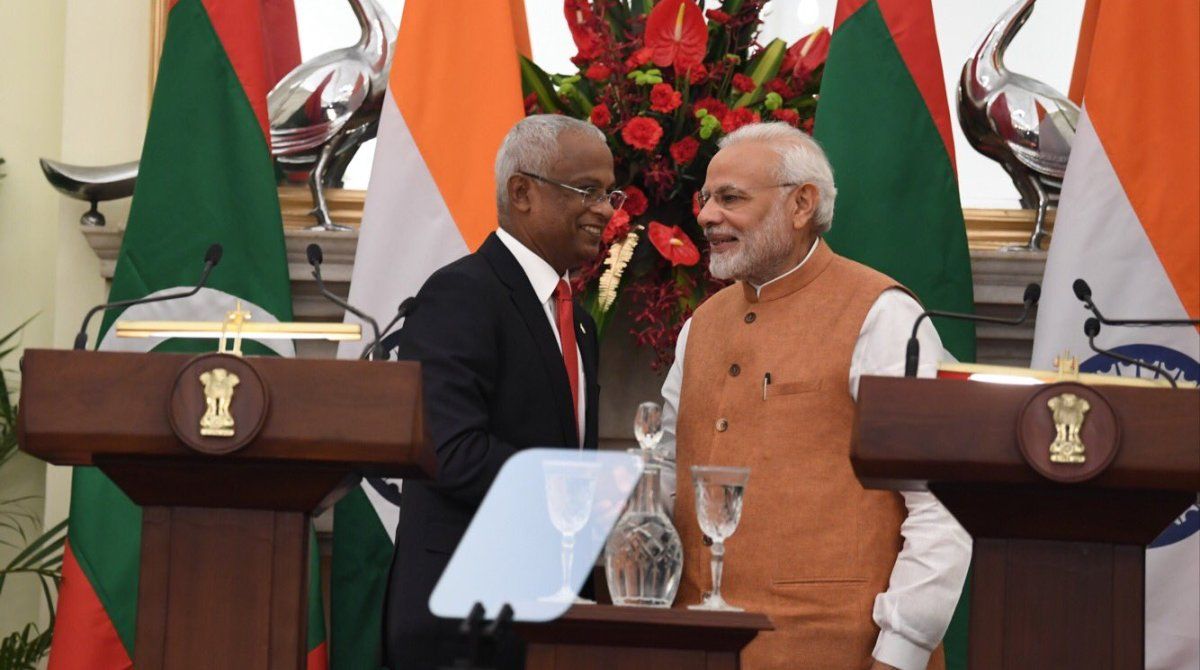Prime Minister Narendra Modi on Monday announced a financial assistance of US$ 1.4 billion in the form of budgetary support, currency swap and concessional lines of credit to the Maldives as the new regime in the island nation reaffirmed its ‘India-First Policy’.
On his maiden overseas visit after assuming office on 17 November, Maldives new President Ibrahim Mohamed Solih held wide-ranging talks with Modi at which the two leaders decided to deepen cooperation between their two countries in key areas like, defence, security, capacity building, art and culture.
Advertisement
The two sides signed four pacts on facilitation of visa arrangements, cultural cooperation, cooperation to improve the ecosystem for agribusiness and cooperation in the field of information and communications technology and electronics.
The two countries also agreed to work together to create institutional linkages and to establish a framework of cooperation in areas like health, particularly cancer treatment, mutual legal assistance on criminal matters, investment promotion, human resource development and tourism, a joint statement issued by the two sides said.
PM Modi congratulated the people of Maldives for their successful and peaceful transition to democracy. He applauded the new President of Maldives on his vision for inclusive, decentralised, people-centric governance, and development that was sustainable.
Recalling his government’s policy of ‘Neighbourhood-First’, Modi reiterated India’s assurance of all possible support to Maldives in realising its aspirations for socio-economic development, and strengthening of democratic and independent institutions.
Both leaders emphasised the need to improve connectivity between the two countries through the establishment of enabling infrastructure that would promote the exchange of goods and services, information, ideas, culture and people. Modi also announced that the Government of India would provide 1000 additional slots over the next five years to the Maldivians for training and capacity building in diverse fields, including judicial, policing and law-enforcement.
Both leaders agreed on the importance of maintaining peace and security in the Indian Ocean Region. In furtherance of the shared recognition that the security interests of both the countries were interlinked in the region, they reiterated their assurance of being mindful of each other’s concerns and aspirations for the stability of the region and not allowing their respective territories to be used for any activity inimical to the other.
The two leaders agreed to strengthen cooperation to enhance maritime security in the Indian Ocean Region through coordinated patrolling and aerial surveillance, exchange of information and capacity building.
The two leaders reaffirmed their unwavering commitment and support for increased cooperation in combating terrorism in all its forms and manifestations both within the region and elsewhere.
They agreed to enhance bilateral cooperation on issues of common concern, including piracy, terrorism, organised crime, drugs and human trafficking. It was also agreed to intensify cooperation in the areas of training and capacity building of Maldives Police Service and Maldives National Defence Force.
